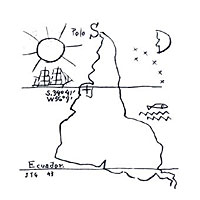Highlights
|
Published on Wed, 2009-12-16 17:28
Social Watch, a network of 400 hundred civil organization in more than 60 countries, calls on governments of the developed world to commit to finding a just solution to the current impass in climate negotiations by adhering to the principle of common but differentiated responsibilities enshrined in the United Nations Framework Convention on Climate Change (UNFCC), the Rio Declaration on Environment and Development, Agenda 21, and the UN Charter of Human Rights. |
|
Published on Wed, 2009-12-16 17:23
SW approved its Strategy Document and elected its new Coordinating Committee. These were some of the many things accomplished in the General Assembly held last October in Accra, Ghana. The Assembly, besides approving the strengthening of activities on the regional level and the expansion of the network, reaffirmed the United Nations as the principal target institution for the work of SW and rejected the further empowerment of illegitimate groupings such as the G-8 and G-20. |
|
Published on Wed, 2009-12-16 17:19
First European Social Watch Report Focuses on Migration Policies |
|
Published on Wed, 2009-12-16 17:17
This month´s “Spotlight On…” column highlights the work of Social Watch Bulgaria, a dynamic national coalition that is helping to spread the Social Watch message of gender equality and social rights for all among the ex-Soviet states in the Eastern and Central European region. |
|
Published on Wed, 2009-12-16 17:01
December |
|
Published on Wed, 2009-12-16 16:58
|
|
Published on Mon, 2009-10-26 07:34
131 nations have dennounced the developed countries for dismantling the Kyoto Protocol and setting new rules for negotiation at the UN Framework Convention on Climate Change in Bangkok. While the media has been shut out of negotiations, civil society has proven an extremely valuable link to those who are not allowed to be part of the discussions. |
|
Published on Mon, 2009-10-26 07:21
In Pittsburgh and New York in September, the Social Watch 2009 Report was launched on a global level. The Report, titled People First, underscores the necessity for solid investments that can stimulate the world economy, and the need for thoroughgoing reforms of the world financial architecture, beginning with institutions such as the International Monetary Fund and the World Bank, so that national policy space is respected and there is policy coherence with regards to internationally agreed-upon norms and commitments. |
|
Published on Mon, 2009-10-26 07:12
OCTOBER
NOVEMBER |
|
Published on Fri, 2009-08-21 15:28
On a chilly winter evening in Montevideo in July, Social Watch partnered with a group of like-minded Uruguayan NGOs to host a seminar to discuss the implications of the global financial economic and regional crisis on a local and regional level. Despite the bitter cold, civil society activists and students from the Social Sciences Department of the Universidad de la Republica came together to add their opinions to the debate on what measures should be taken to ensure that the crisis does not reverse the social gains made by Uruguay´s center-left government in recent years. |
SUSCRIBE TO OUR NEWSLETTER

 The global financial crisis which caused in 2009 the most serious global recession in 80 years, together with the difficult debate that is taking place in Denmark on how to prevent global warming, mitigate its impacts, and adapt to its already inevitable consequences, are the two biggest news stories of the year that is about to end.
The global financial crisis which caused in 2009 the most serious global recession in 80 years, together with the difficult debate that is taking place in Denmark on how to prevent global warming, mitigate its impacts, and adapt to its already inevitable consequences, are the two biggest news stories of the year that is about to end.
